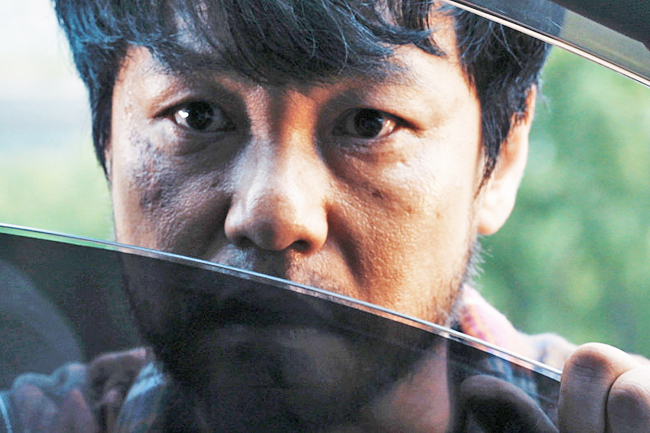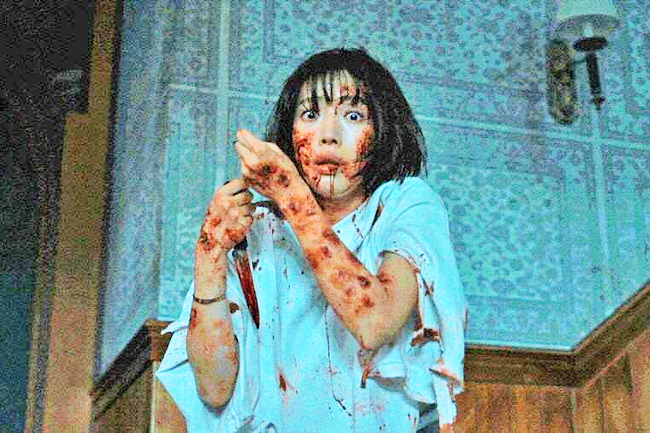ANN/THE KOREA HERALD – In Korea, horror films have conventionally premiered during the peak of summer, typically in July or August.
However, a recent shift in strategy has emerged, with an emerging trend to launch them toward the conclusion of the summer season.
The timing is chosen to avoid the intense competition posed by major blockbuster releases.
This month marks the release of a series of low-budget horror films.
Jason Yu’s Sleep is a 94-minute-long mystery thriller revolving around a sleep-walking husband and his wife, who believes he may be possessed by a demon. The film was invited to the 76th Cannes International Film Festival in May as part of the noncompetitive Critics’ Week section.
Without showing a presence or using ghostly sound effects, the film offers extreme thrills despite being set in the newlywed couple’s unremarkable home. Director Yu has also called his film “a mix of various genres” including horror, mystery and thriller.


Next is Chiaksan, a film that went viral because of a dispute between the production firm and the Wonju city government.
Directed by Kim Seon-woong and starring Yoon Kyun-sang Chiaksan is set in 1980 and follows a ghost story in which pieces of a dismembered body are found in the Chiaksan area, which is close to Wonju.
The title angered the city government, which claimed that the horror film’s portrayal of Chiaksan might cause residents anxiety and raise concerns of copycat crimes.
Another horror flick is Chabak – Night of Murder and Romance. Singer and actor Danny Ahn plays the lead role in the nightmare-like story of a newlywed couple who go on a trip to celebrate their wedding anniversary.
Three horror films have already grabbed moviegoers’ attention.
Target, a mystery thriller directed by Park Hee-gon, ranked first on the box office in terms of ticket reservations, ahead of Christopher Nolan’s Oppenheimer, as of the day of the film’s opening.
This nail-biting thriller tells the story of Soo-hyun (Shin Hae-sun) who works at an interior design company and lives the ordinary life of an office-worker, but later becomes the target of a murderer who she comes to know through a secondhand marketplace.
Body Parts, an omnibus film that introduces six different short stories by six directors, deals with various relatable topics, including a dispute over noise in an apartment block, which later develops into violence and murder.
The other episode deals with a reporter who covers a pseudo-religion.
Her Hobby, directed by Ha Young-mi, portrays a reclusive village and its residents’ violence against a stranger there.
Ha has said in a recent interview that she wanted to tell the story of how a peaceful and homely community can turn into a heinous town at night, showing a stark contrast to beautiful nature during the day time and jet-black dark countryside town at night.
These Korean films are slated to compete directly with foreign horror flicks that are also opening this month, such as The Nun, Innocent, A Haunting in Venice and The Reef: Stalked.
Industry insiders said that the later-than-usual release of Korean horror flicks was heavily influenced by the pandemic, as blockbuster films that were delayed due to pandemic have targeted the summer holiday season.
“Different films have different reasons, but many films (that are releasing this year) had to take many things into consideration, such as theatres (screen time), promotion schedules and competition due to the pandemic’s impact on the release dates,” said an industry insider who works at a distribution firm.
Others also said that rookie directors and mid-sized production firms were paying more attention to horror and thriller genres as part of a survival strategy, as they stand out against other blockbuster films’ topics and concepts.
“Horror, along with action and adventure, offers a thrilling cinematic experience to the audience.
“That’s what is driving the rise in horror films around the world,” said head of Lewis Pictures Kim Tae-wan. – Kim Da-sol


